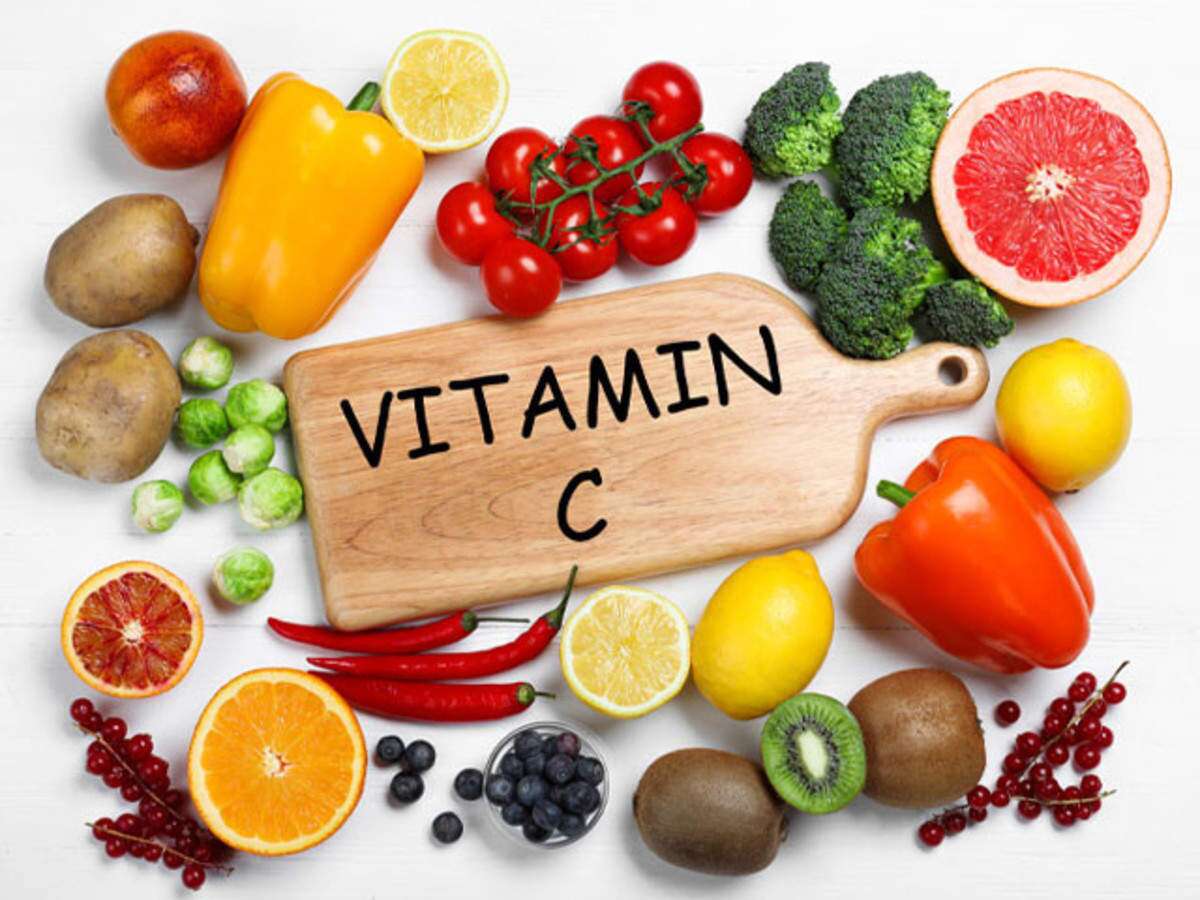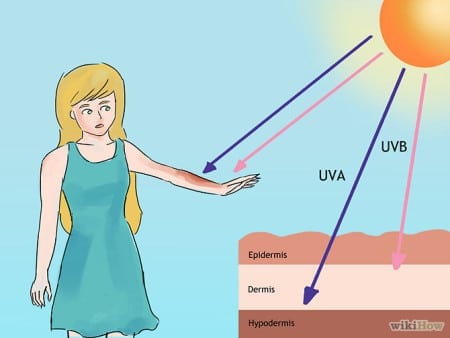Role of Vitamins
Importance water soluble vitamins
Importance Water-soluble vitamins are a crucial group of eight B vitamins and Vitamin C that play a vital role in maintaining good health. Unlike fat-soluble vitamins, they are not stored significantly in the body and need to be replenished regularly through diet. Let’s explore each vitamin in detail:
water soluble vitamin
1. Role of Vitamins C (Ascorbic Acid)
- Function:
Water-Soluble Vitamin C (Ascorbic Acid) a powerful antioxidant that protects cells from damage, boosts the immune system, aids collagen production, and promotes wound healing.
- Sources: Citrus fruits (oranges, grapefruits, lemons), kiwi, bell peppers, broccoli, strawberries.
- Deficiency Symptoms: Fatigue, weakness, dry skin, bleeding gums, poor wound healing, increased susceptibility to infections (scurvy).
- Toxicity: Generally safe, but very high doses can cause nausea, diarrhea, and stomach cramps.

Ex.-Citrus fruits
2. Role of VitaminsB1 (Thiamine)
- Function: Water-Soluble Vitamin B1 Essential for energy production by converting carbohydrates into usable fuel. Also supports nervous system function and heart health.
- Sources: Whole grains (brown rice, oats), legumes (beans, lentils), nuts (sunflower seeds, peanuts), pork, liver.
- Deficiency Symptoms: Fatigue, weakness, loss of appetite, weight loss, confusion, irritability, nerve problems (beriberi).
- Toxicity: Rare, but high doses can cause insomnia and restlessness.
Ex.-Whole grains, legumes, nuts
3. Role of Vitamins B2 (Riboflavin)
- Function:
Water-Soluble Vitamin B2 (Riboflavin) Involved in energy production, cell function, and healthy vision. Helps convert food into energy and plays a role in maintaining healthy skin and mucous membranes.
- Sources: Leafy green vegetables (spinach, kale), dairy products (milk, yogurt, cheese), eggs, lean meats (chicken, fish).
- Deficiency Symptoms: Sore throat, cracked lips, inflamed tongue, light sensitivity, scaly skin (rare).
- Toxicity: Generally safe, excess amounts may cause a yellowing of the urine but are harmless.

Ex.-Leafy green vegetables
4. Role of Vitamins B3 (Niacin)
- Function:
Water-Soluble Vitamin B3 (Niacin) Helps convert food into energy, supports brain function, promotes healthy skin, and regulates cholesterol levels.
- Sources: Lean meats (chicken, fish), poultry, nuts (peanuts), legumes (beans), whole grains (oats, brown rice).
- Deficiency Symptoms: Dermatitis (skin inflammation), fatigue, weakness, diarrhea, dementia (pellagra).
- Toxicity: High doses can cause flushing, nausea, vomiting, and liver damage.
Ex.-Lean meats Peanuts
5. Role of Vitamins B5 (Pantothenic Acid)
- Function: Water-Soluble Vitamin B5 (Pantothenic Acid) Needed for energy production, hormone synthesis, and maintaining a healthy nervous system. Plays a role in metabolizing fats and carbohydrates.
- Sources: Widely found in various foods – meats, poultry, fish, eggs, dairy products, whole grains, legumes, avocados, mushrooms.
- Deficiency Symptoms: Rare, but may include fatigue, muscle weakness, burning feet, tingling sensations.
- Toxicity: Very high doses can cause stomach upset and diarrhea.

Ex.-Mushrooms
6. Role of Vitamins B6 (Pyridoxine)
- Functions of Vitamin B6 Water-Soluble Vitamin B6 (Pyridoxine
- Energy metabolism: Vitamin B6 is involved in breaking down carbohydrates, fats, and proteins into energy that your body can use.
- Hemoglobin production: It is necessary for the production of hemoglobin, the protein in red blood cells that carries oxygen throughout the body.
- Brain function: Vitamin B6 is important for the development and function of the brain and nervous system. It helps produce neurotransmitters, which are chemical messengers that carry signals between nerve cells.
- Immune function: Vitamin B6 supports the immune system by helping the body produce white blood cells, which help fight infection.
- Gene expression: Vitamin B6 is involved in gene expression, which is the process by which genes are turned on or off to produce proteins.
- Sources of Vitamin B6 Vitamin B6 is found in a variety of foods, including:
- Poultry and fish
- Meat (especially organ meats)
- Chickpeas and other legumes
- Nuts and seeds
- Whole grains
- Starchy vegetables
- Bananas
- Avocados
- Deficiency of Vitamin B6
Vitamin B6 deficiency is rare in developed countries, but it can occur in people who have a poor diet or who have certain medical conditions that affect nutrient absorption. Symptoms of vitamin B6 deficiency can include:
- Anemia
- Skin problems
- Cheilosis (cracks at the corners of the mouth)
- Glossitis (inflammation of the tongue)
- Peripheral neuropathy (nerve damage in the hands and feet)
- Seizures
- Depression
7. Role of Vitamins B7 (Biotin)
- Function:
Water-Soluble Vitamin Vitamin B7 (Biotin) Supports healthy hair, skin, and nails. Also involved in carbohydrate metabolism and energy production.
- Sources: Eggs, nuts (almonds, walnuts), dairy products, cauliflower, avocado, bananas.
- Deficiency Symptoms: Rare, but may include hair loss, brittle nails, skin rash, fatigue.
- Toxicity: Very high doses can cause nausea, vomiting, and muscle cramps.
Ex.-walnuts ,Almond
8.Role of Vitamins B9 (Folate)
- Function: Water-Soluble Vitamin B9 (Folate) Crucial for cell growth and division, especially important during pregnancy for fetal development. Supports DNA synthesis and red blood cell production.
- Sources: Leafy green vegetables (spinach, kale), legumes (beans, lentils), fortified grains, nuts (almonds), oranges.
- Deficiency Symptoms: Anemia, fatigue, weakness, diarrhea, birth defects (neural tube defects) in pregnant women.
- Toxicity: Generally safe, but very high doses can mask vitamin B12 deficiency.

Ex.-Fortified grains
9.Role of Vitamins B12 (Cobalamin)
-
Function:
Water-Soluble Vitamin B12 (Cobalamin)
- Nervous System Function: Vitamin B12 is essential for the proper functioning of the nervous system. It helps maintain the myelin sheath, a fatty layer that insulates nerve fibers and enables efficient nerve impulses. Deficiency can lead to nerve damage and neurological problems.
- Red Blood Cell Production: B12 is necessary for the formation of healthy red blood cells. It works with folate in DNA synthesis, a crucial process for red blood cell development. Deficiency can cause megaloblastic anemia, characterized by large, immature red blood cells.
- DNA Synthesis and Cell Division: Vitamin B12 is involved in the production of DNA, the genetic blueprint for all cells. It aids in cell division and growth throughout the body.
- Energy Production: B12 plays a role in converting food into usable energy by helping to break down carbohydrates, fats, and proteins.
-
Sources:
Vitamin B12 is naturally found only in animal products as it requires a specific bacterial fermentation process in the gut of animals. Here are some rich sources: meat, liver ,lamb, chicken, egg.
For vegetarians and vegans, fortified foods like plant-based milks and cereals, or supplements can help ensure adequate B12 intake.
-
Deficiency Symptoms:
Vitamin B12 deficiency can develop gradually and can take years to manifest. Early symptoms can be subtle and non-specific, making diagnosis challenging. Here are some common signs: Fatigue and weakness ,burning sensation in the hand and feet ,Anemia ,pale skin, Glossitis, mood changes.
-
Toxicity:
Vitamin B12 toxicity is extremely rare due to its water-soluble nature and efficient excretion by the kidneys.
-
Additional Considerations:
- Absorption: Vitamin B12 absorption requires a complex process involving stomach acid and a protein called intrinsic factor. People with certain digestive conditions or who have undergone stomach surgery may have difficulty absorbing B12.
- Age: As we age, our ability to absorb B12 naturally declines. Adults over 50 may benefit from including B12-fortified foods or supplements in their diet.
- Pregnancy and Lactation: Increased B12 needs during pregnancy and breastfeeding are crucial for fetal development and infant health. Consult your doctor for guidance on B12 intake during these times.

Ex.-Fortified foods like plant-based cereals
By understanding the importance of Vitamins and incorporating reliable sources into your diet, you can ensure your body has the necessary fuel for optimal health and well-being
Importance Fat-Soluble Vitamins
Fat-soluble vitamins they dissolve in fat and are stored in the body’s liver, fatty tissues, and muscles. This storage advantage means these vitamins can stick around for longer periods compared to water-soluble vitamins that get flushed out regularly. However, excess intake of fat-soluble vitamins can also lead to toxicity due to this storage ability.
Here’s a detailed breakdown of the four essential fat-soluble vitamins:
Fat-Soluble Vitamins
1. Role of Vitamins A (Retinol)
- Function:
Fat-Soluble Vitamin A (Retinol) Crucial for vision, especially night vision. Also important for cell growth, immune function, and healthy skin.
- Sources: Found in animal sources like liver, eggs, and fatty fish its a rich sources. Beta-carotene, a precursor to Vitamin A, is abundant in brightly colored fruits and vegetables like carrots, sweet potatoes, mangoes, and leafy greens.
- Deficiency Symptoms: Night blindness, dry eyes, dry skin, impaired immunity.
- Toxicity: Excessive intake can lead to headaches, nausea, birth defects (in pregnant women), and liver damage.
Ex.-Eggs, and Fatty fish
2.Role of Vitamins D (Calciferol)
- Function: Fat-Soluble Vitamin D (Calciferol) Essential for calcium absorption and bone health. Also plays a role in cell growth, immune function, and mood regulation.
- Sources: Synthesized in the skin upon exposure to sunlight (UVB rays)its rich sources. Can also be obtained from fatty fish, fish oil, egg yolks, and fortified foods like milk and cereals.
- Deficiency Symptoms: Rickets in children (causing soft bones and growth problems), bone weakness and increased risk of fractures in adults.
- Toxicity: Rare, but excess intake can lead to hypercalcemia (elevated blood calcium) causing nausea, vomiting, kidney problems, and confusion.

Ex.-(UVB rays)
3. Role of Vitamins E (Tocopherol)
- Function:
Fat-Soluble Vitamin E (Tocopherol) Acts as an antioxidant, protecting cells from damage. May also play a role in immune function and brain health.
- Sources: Found in nuts, seeds, vegetable oils (olive oil, sunflower oil), avocados, and leafy green vegetables.
- Deficiency Symptoms: Rare, but may lead to nerve problems, muscle weakness, and vision problems.
- Toxicity: Generally safe, but very high doses can increase bleeding risk and interfere with vitamin K function.

4. Role of Vitamin K (Menaquinone)
- Function: Fat-Soluble Vitamin K (Menaquinone) Essential for blood clotting and bone health. Helps activate proteins involved in these processes.
- Sources: Found in leafy green vegetables (kale, spinach, collard greens), fermented foods like sauerkraut and some cheeses. The body can also synthesize some Vitamin K.
- Deficiency Symptoms: Increased bleeding risk, especially after injury or surgery.
- Toxicity: Rare, but high doses can interfere with blood-thinning medications.

Ex.- green leafy vegetables
General Tips for Fat-Soluble Vitamins:
- Aim for a balanced diet rich in a variety of whole foods, especially fruits, vegetables, nuts, seeds, and healthy fats. This will ensure you get most of the fat-soluble vitamins you need.
- Consult your doctor before taking any high-dose supplements containing fat-soluble vitamins, especially if you have any underlying health conditions.
- Sun exposure in moderation helps with Vitamin D synthesis, but remember to protect your skin from sunburn.
By understanding these essential fat-soluble vitamins and incorporating a healthy diet, you can ensure your body has the building blocks it needs to function optimally.
